ARTICLE AD BOX
15 minutes ago
By Katie Razzall, Culture and Media Editor, @katierazz • Ian Youngs, Culture reporter

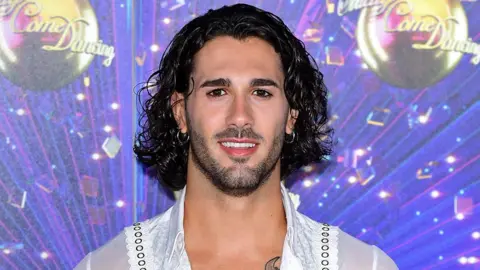 PA Media
PA Media
Graziano Di Prima was removed from this year's line-up last weekend
The spokesman for Strictly Come Dancing's Graziano Di Prima has confirmed the star kicked celebrity partner Zara McDermott once during rehearsals last year, which led to his removal from the show.
"There is never a time when kicking, or any sense of that is right," Mark Borkowski told BBC News. "And he knows that.
"He knows he's made a mistake. He apologised at the time."
Di Prima thought the matter had been resolved, but video of the incident is believed to have been brought to the attention of the BBC last week, and the dancer was then removed from this year's line-up.

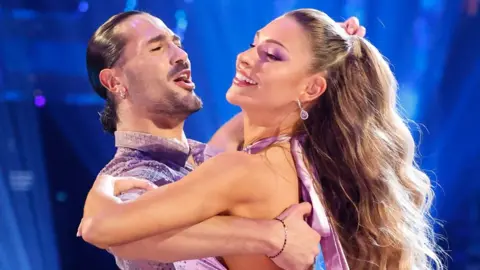
Di Prima was partnered with TV star Zara McDermott in last year's series
The show has been at the centre of controversy after complaints about fellow professional dancer Giovanni Pernice as well as Di Prima.
Pernice has denied "any suggestion of abusive or threatening behaviour".
On Saturday, Di Prima said he "deeply regrets" the events that led to his departure, and that his "intense passion and determination to win might have affected my training regime".
Ex-Love Island star and documentary presenter McDermott then posted her own statement saying she was involved in incidents in the training room that she now finds "incredibly distressing" to watch back.
The video has not been made public, and the circumstances surrounding it are not known.
BBC News has not seen the video, but understands the video shows Di Prima kick McDermott during a rehearsal.
Mr Borkowski said Di Prima did not clearly remember the incident, but did not deny there was a kick and the spokesperson accepted that he had "crossed the line".
He did, however, deny reports that he spat on his dance partner.
Di Prima "does remember that he was pushing [McDermott] quite hard" in training on the day in question, Mr Borkowski said.
"But he doesn't recognise some of the issues surrounding it," he added, referring to recent newspaper reports.
"The descriptions of what is being commented online, and how he remembers it, are not aligned," he said.
And he said it was "absolute rubbish" that a single incident was typical of what went on during "weeks and weeks of training".
There is also "lots of evidence" of Di Prima and McDermott "having a huge amount of fun together through this process", he said.
In her statement, McDermott she said she "fully understood the level of commitment and hard work that Strictly was going to be and I dedicated everything to it".
"I am a resilient person and I was fully prepared to put in whatever it took," she added.
Much of the Strictly experience was "everything I could have dreamt of" and the show's team were "so amazing to work with", she said.
"However, my experience inside the training room was very different. Reports have been made about my treatment on the show and there were witnesses to some events, as well as videos of particular incidents which are incredibly distressing to watch."

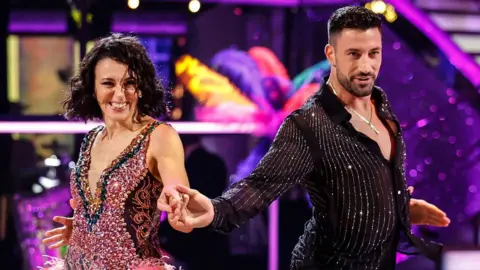
Actress Amanda Abbington has made a complaint about her partner Giovanni Pernice
Di Prima has now returned to Italy, his home country, and is now doing manual labour on a remote farm, he said. "He has literally cut himself off from civilisation.
"I think that's a wise thing to do, supported by his wife. He's coming to terms with his mental health issues."
Mr Borkowski said he had advised Di Prima to seek professional assistance since his removal from the show.
Following the revelations, the BBC has announced it will put a member of Strictly production staff in all rehearsals in the future to observe behaviour.
There will also be enhanced training and two new dedicated welfare producers - one for the celebrity contestants and the other for the professional dancers.
BBC director of unscripted Kate Phillips said the "vast majority of those who have taken part" in the show have had positive experiences.
"If issues are raised with us, or we’re made aware of inappropriate behaviour, we will always take that seriously and act," she said.
"Concerns that have arisen have been fundamentally related to training and rehearsals."
The BBC has now taken "decisive steps" to "further strengthen the welfare and support in place for everyone involved with this production", she added.
'Intense' training
But Mr Borkowski said the BBC "arguably have come in late" to addressing the issues involved, and the corporation had been "aware of all the professionals and how hard they push it".
The training process for novice dancers is "intense", he said.
"It is an incredibly difficult thing to go from turning that person from an ugly duckling into a swan."
Former Strictly professional Kristina Rihanoff, who was on the show between 2008-15, described it as a "world of glitz and glamour and a lot of pressure".
Any verbal or physical abuse is "not acceptable at all", she told BBC News.
"I don't believe violence of any kind, abuse of any kind, is the answer to anything.
"You've got to be able to regulate your emotions. You are an adult. You’ve got to regulate it.
"You've got to understand that you’re hired to do a very intense job and you get frustrated, tired, you can snap, but physical abuse obviously is a no."
She called for better psychological evaluations.
"We see the glamor and the glitter on a Saturday night, but prior to that it is gruelling hours, hard work, a lot of emotions, a lot of stress," she said.
Broadcaster Rev Richard Coles told BBC Breakfast he had a "whale of a time" when he took part in the show in 2017, but that he wasn't surprised by the current furore.
"Strictly is showbusiness. The family-friendly, glittering surface that you see - well, behind that there's all sorts of things going on, not least intense competition.
"It's such a big show. The professional dancers have been doing it literally since they were kids in a very disciplined, very rigorous, very tough, sometimes even brutal kind of world.
"I think sometimes when celebrities encounter that, there's a kind of culture shock.
"Somebody I know who worked on the show for a long time described it as 'a great show with a dark heart'.
"I didn't really understand what they meant when they said that. But I think it's partly that in the glitter of the glitterball you see one thing, but offstage of course it's a different story."
'Want to get it right'
There is a wider culture of intense competition in the dance world, according to Terry Hyde, a dancer-turned-choreographer who has set up the charity Stepps to provide mental health support for dancers.
Many dance teachers and choreographers are supportive, but others still work in "the old-school way", he said.
"They are perfectionists. They want to get it right, and they don't want to be made to look stupid by a partner that can't dance.
"These celebrities, unless they've done musical theatre, have probably never done anything like that before.
"The other thing to say is good dancers don't necessarily make good choreographers or good teachers."

 9 months ago
39
9 months ago
39
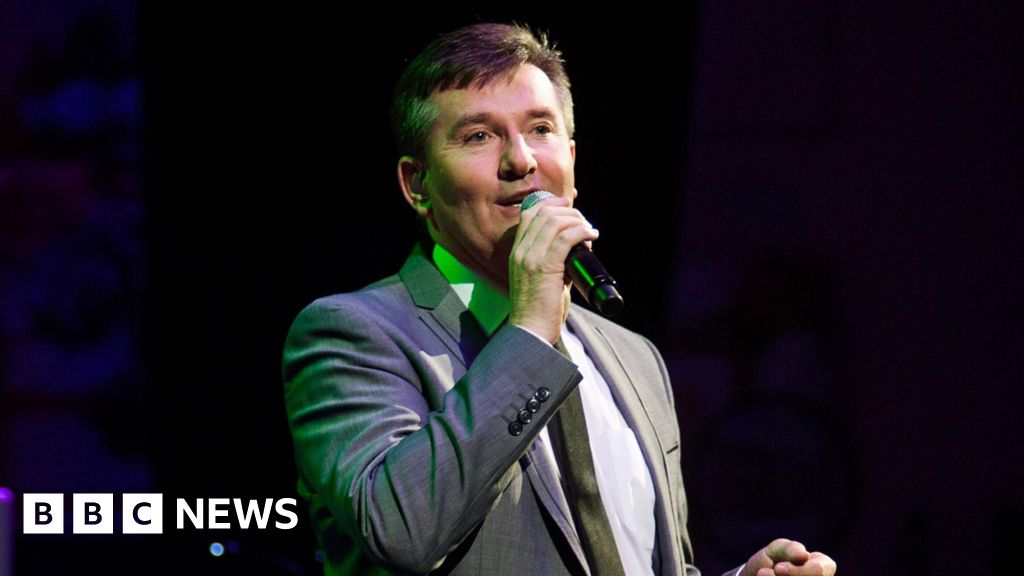
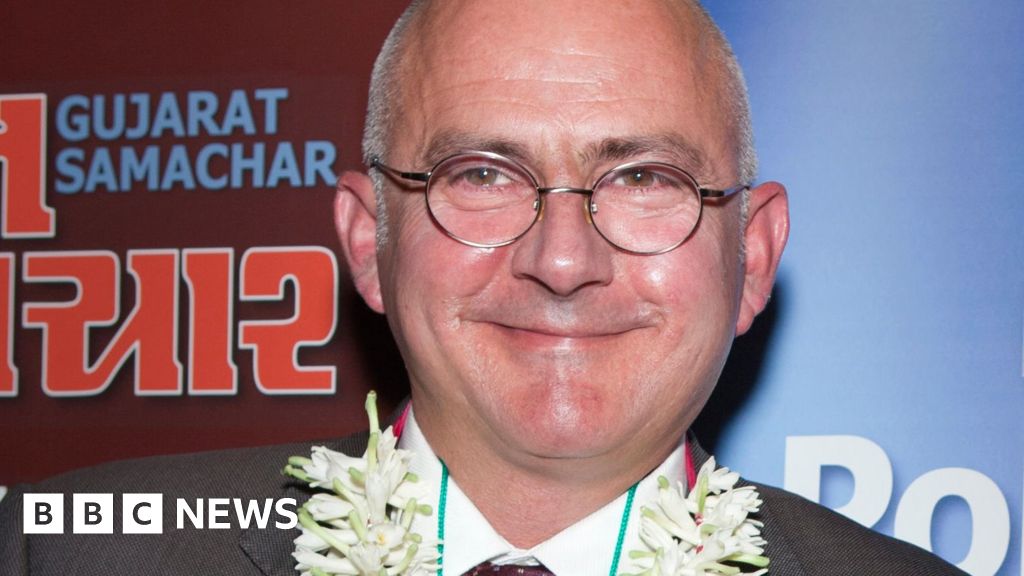
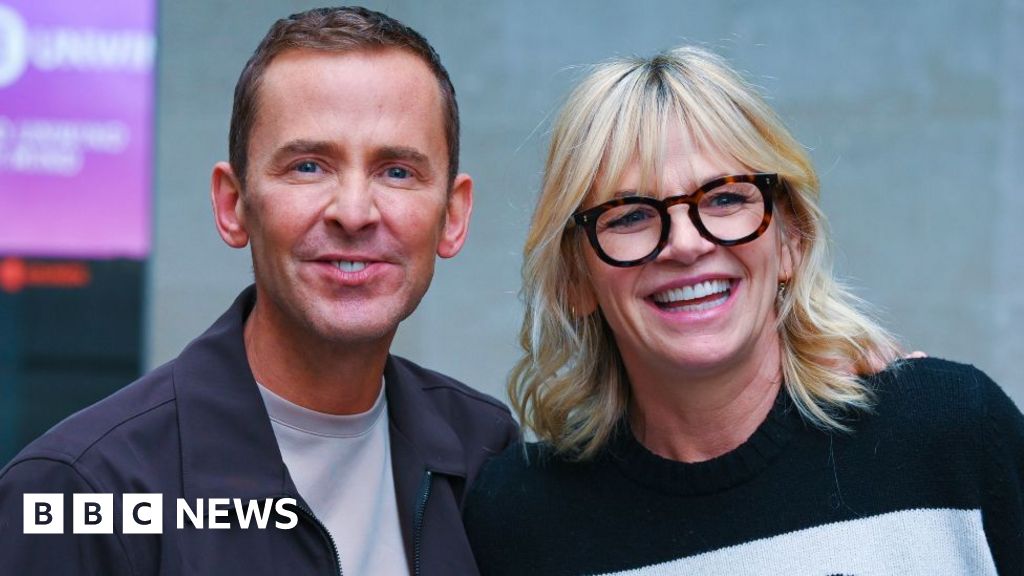





 English (US) ·
English (US) ·